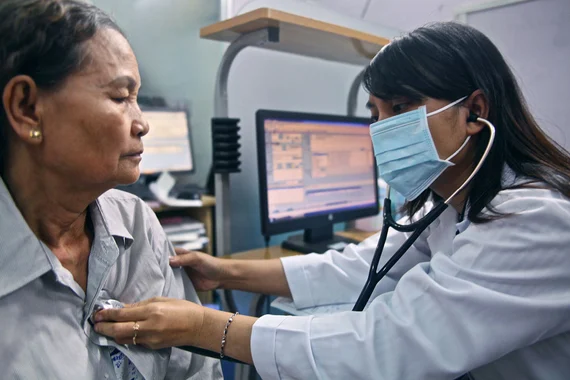About us
CARDIO4Cities

Our approach
We collaborate with city health authorities and their partners to co-design local intervention roadmaps for better heart health, using CARDIO, an acronym that describes the six strategic pillars: quality of Care, ensure Access, policy Reform, Data and digital technology, Intersectoral collaboration, and local Ownership. This whole-of-the-city approach works in all types of contexts and ensures results that are both measurable and sustainable at scale.

Why it matters
Cardiometabolic diseases represent a growing burden, with more than 25 million deaths expected annually by 2030, many of those prematurely before the age of 60. By reimagining the management of hypertension, diabetes and hypercholesterolemia, cities can rapidly reduce strokes and heart attacks, saving millions of lives while transforming their health systems.

Initial impact and the road to global scale
In the pioneer cities São Paulo, Dakar, and Ulaanbaatar, CARDIO4Cities improved population-level hypertension control up to sixfold in one to two years of implementation. These first results translated into reductions of up to 12% of strokes and 13% of heart attacks, making CARDIO4Cities a winning strategy that translates evidence into action and rapidly improves the health of urban populations.
Today, CARDIO4Cities is being replicated in many more cities around the world, with the aim to impact the heart health of 150 million people in 30 major cities by 2030. This is only possible thanks to a strong coalition of partners and co-funders from healthcare, technology and insurance industries, other foundations, and multilateral organizations such as UNDP and the Development Banks.



